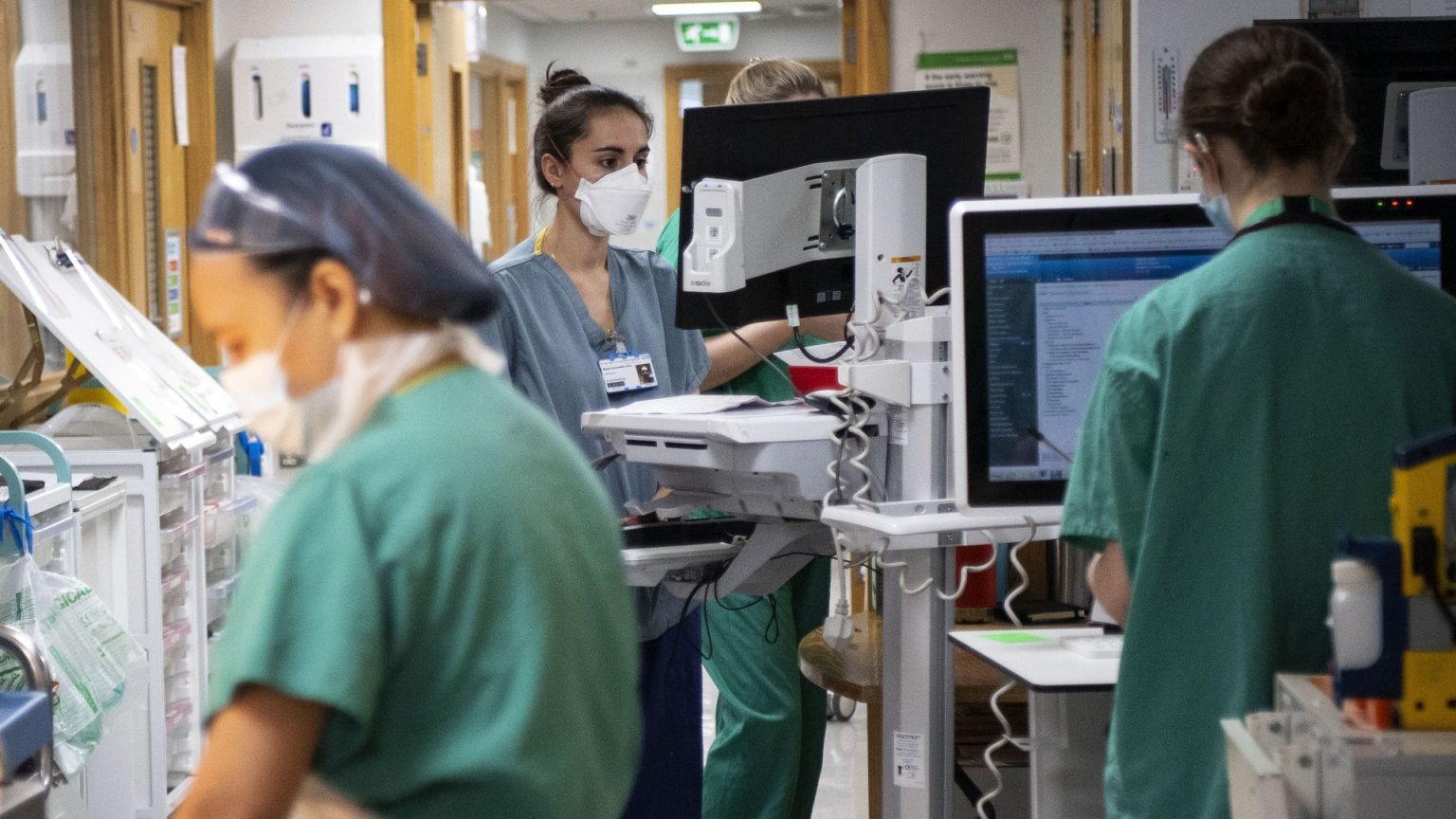The National Health Service (NHS) in the UK is grappling with an overwhelming surge in flu cases, leading to overcrowded hospitals and a desperate scramble for solutions. This winter season has seen a “quad-demic” of illnesses, with flu, COVID-19, norovirus, and RSV all contributing to the strain on healthcare resources. The situation has become so dire that hospitals are resorting to treating patients in corridors, a practice medical professionals deem unsafe and undignified. Whittington Hospital in North London has even advertised for “corridor nurses,” a move that has sparked outrage and concern among healthcare professionals.
The creation of “corridor nurse” positions highlights the severity of the crisis. Hospitals are installing power sockets and oxygen lines in corridor walls, effectively transforming these spaces into makeshift wards. This practice has been met with strong criticism from leading medical figures, including Professor Nicola Ranger, head of the Royal College of Nursing, who describes it as a “desperate” measure that compromises patient safety and dignity. Similarly, Adrian Boyle, president of the Royal College of Emergency Medicine, labels the situation “completely unacceptable.” The lack of call bells in corridors, the use of sheets for privacy during toileting, and even the occurrence of a patient dying in a corridor underscore the inadequacy of such arrangements.
First-hand accounts from patients and their families paint a grim picture of the conditions within overwhelmed hospitals. One elderly patient resorted to using a bottle for toileting due to mobility issues and lack of access to proper facilities, a situation described as “degrading” by his companion. The NHS acknowledges the strain on its resources and apologizes for any compromise in the quality of care. Whittington Health NHS Trust, while defending the use of corridors as a last resort, emphasizes their efforts to bring in additional staff to ensure the safest and most compassionate care possible under the circumstances. They also highlight their collaboration with other healthcare partners to mitigate the impact of the crisis.
The surge in flu cases has led to numerous critical incidents being declared across NHS trusts in England. Hospitals are urging people to attend A&E alone and wear face masks to help manage the overwhelming demand. Professor Julian Redhead, NHS England’s director of emergency care, expressed hope that the flu cases would peak within the next one to two weeks, but acknowledged the ongoing pressure on A&E departments due to full wards. The situation is exacerbated by the “skyrocketing” flu cases over the festive period, with hospitalizations quadrupling compared to the previous month. Warwick Hospital, among others, has declared a critical incident due to record-high A&E attendances.
The “quad-demic” of illnesses has placed an unprecedented burden on the NHS. Hospitals are struggling to cope with the influx of patients, leading to long waiting times and compromised care. Dr Naomi Caldwell, of NHS Northamptonshire, described this winter as one of the most challenging ever experienced by the NHS. Several hospitals have reported significant pressures on their services, highlighting the nationwide scope of the crisis. Despite the challenges, NHS England maintains that treating patients in temporary spaces is unacceptable and should not become standard practice.
The current situation within the NHS underscores the urgent need for systemic solutions to address the ongoing pressures on healthcare resources. While temporary measures like recruiting “corridor nurses” may offer some immediate relief, they are ultimately unsustainable and compromise the quality of care. The NHS needs long-term strategies to strengthen its capacity, improve efficiency, and ensure that patients receive the dignified and safe care they deserve. The ongoing crisis serves as a stark reminder of the importance of investing in and supporting the healthcare system to meet the evolving demands of public health.











